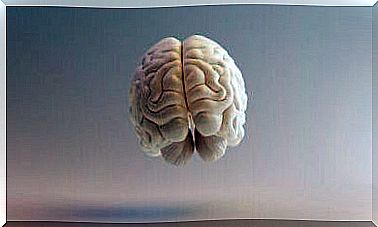Interview With Rafael Santandreu: “If You Control Your Thoughts, You Control Your Emotions “
Any interview with Rafael Santandreu is an exercise in learning and discovery. In his latest book Nada es tan terrible: la filosofía de los más fuertes y felices (literally, Nothing is so terrible: the philosophy of the strongest and happiest ), he offers us a practical guide to personal transformation and l ‘self-therapy. This is a work as complete as it is original to acquire valuable strategies based on cognitive psychology.
He is the author of books very well known to the public such as The art of not poisoning life ” or Glasses of happiness. Santandreu stands out for his ability to make us understand the origin of our vital dissatisfactions, our sadness and the way our thoughts shape reality.
Interview with Rafael Santandreu
In our interview with Rafael Santandreu, we focus on the importance of how we interpret things that happen to us, even the most adverse.
At the same time psychologist, trainer, publicist and therapist specializing in strategic therapy, Rafael Santandreu is this reference figure who invites us to question ourselves about ourselves. Thanks to him, we have adopted terms like terribilitis or necesititis, ideas that force us to look within to understand how we can end up limiting our human potential.
In his latest book, Santandreu offers us some very interesting philosophical approaches in order to show us how the basis of happiness and positive psychology is also nourished by our classics.
The approach he offers us in Nothing is so terrible responds once again to what he has accustomed us to: an original and innovative lesson to allow us to grow. It is a boost to awaken our inner joy, a journey that, without a doubt, is worth taking with him.
Is the cognitive psychology you practice based on modifying internal dialogue?
Yes. Remember that Epictetus, the great Stoic philosopher, said: “We are not affected by what happens to us but by what we say to ourselves about it”. It means you don’t get depressed because your boyfriend has left you. You get depressed because you say to yourself: “I am alone! I will never be happy again! I need him !”.
In reality, the majority of adversities should not affect us so much. However, since we activate an extremely negative internal dialogue, we fall into anxiety or depression.
Do the strongest and happiest people have a special internal dialogue?
Yes. They never dramatize. In fact, they consider that there are adversities in life, and these hurt them a bit, but not to the point of preventing them from being happy. They are convinced of it. But it is true that there are sometimes great adversities such as having cancer or losing a loved one …
Does that mean we can all learn to be like him?
I assure you that if you acquire the personal philosophy of people like Stephen Hawking, your emotional world will change: small adversities will not affect you as much and you will have a lot more mental space to enjoy life. It all lies in the internal dialogue, in your beliefs about life.
What beliefs lead to this new philosophy of life?
One of the fundamentals is to fight “necesititis”, the idea that you need a lot of things to be happy. In truth, we only need food and water.
Everything else is incidental and superfluous: being in a relationship, having a job, for example, are not important things to be happy. The main thing is not to complain and appreciate what you have.
And health ? Don’t we need it to be serene and to feel good?
No ! Health is the first thing we lose as we grow older. Hanging on to health is absurd. I assure you that we can be happy even with serious illness. You already have the example of Stephen Hawking, and there are many more. Once again, what matters is what you say to yourself. Are you going to dramatize or not?
Many people feel depressed about the death of a loved one. But I assure you that this depression is only the fruit of their internal dialogue about death. I believe that death is a beautiful thing. Why ? Because all natural facts are good and necessary. My death and that of my relatives is a beneficial fact.
Do you think cognitive psychology has a “correct” way of thinking in the face of adversity?
Yes. My books, for example, are a collection of philosophical principles that will convince you that you can be happy in the face of any adversity. You will find a lot of arguments which together will lead you to say to yourself: “Nothing can make me unhappy!”.
Moreover, Epictetus, the philosopher you mentioned, was a slave …
Correct: he was born a slave! His parents were already before him and sold him when he was born. His master, Epaphroditus, took him to Rome. Despite everything, he was happy. He said to himself: “As long as I can do beautiful things for myself and for others, I will be happy”.
Like Stephen Hawking. Here we can see that the key to happiness lies in your internal dialogue. If you control your dialogue every day, you will learn to be happy.
Is this a daily workout?
Yes. Cognitive psychology will ask you, every day, to focus on what you are telling yourself when you are facing adversities.
For example, imagine you find yourself in a traffic jam. Don’t say to yourself, “I’m sick of this! I should be able to drive normally! ” but “It doesn’t matter that there is this traffic jam. I can do other things to enjoy life, like singing, calling my family and having a chat, etc. ”.
So we need to focus on our dialogue during any adversity, be it big or small?
Exactly. The next time you’re stuck in a traffic jam, you’ll be surprised at how less it affects you. And this will happen with everything. Let’s take another example: if someone says something unpleasant to you, work so that it doesn’t affect you: “I don’t need everyone to treat me well all the time; it doesn’t matter if someone insults me: in reality, it’s their problem, not mine ”.
I’m simplifying it because in reality we have to make a lot more arguments so that these things don’t affect us. However, the dynamics are like what I just told you.
How long do we need to change this general internal dialogue and start feeling better?
Important changes will already take place during the first month of work on internal dialogue. After three months, the person feels 80% better. To feel 100% better, it takes a little longer, maybe a year or two. The main thing is to work every day.
The result is that you are happier. You no longer dramatize, you dare to do more things and you appreciate everything around you in life a lot more.









